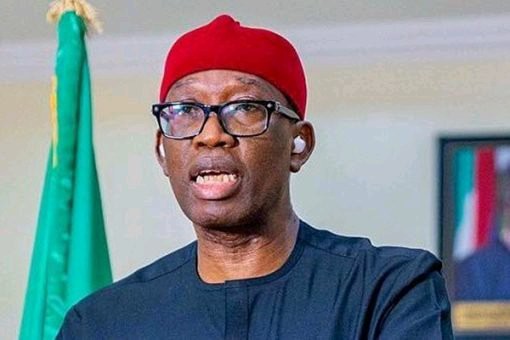Former Delta State Governor, Dr. Ifeanyi Okowa, recently admitted he regrets accepting the role of vice-presidential candidate alongside Alhaji Atiku Abubakar in the 2023 presidential election. In a candid interview on Arise Television’s Morning Show, Okowa revealed that his decision may have contradicted the prevailing sentiment in his home state and acknowledged the political consequences of his choice.
According to report from The Nation News, Okowa explained that although he joined the Atiku ticket out of loyalty to the Peoples Democratic Party (PDP), he later realized the people of Delta State were not in favor of another northern presidency after Muhammadu Buhari. He admitted that, despite his nomination being a party-level decision, in hindsight, he would have aligned more with the wishes of his people. This misalignment, he said, played a role in the PDP’s poor performance in Delta during the presidential election.
Despite the setback, Okowa highlighted the PDP’s rebound in the 2023 governorship election, where the party won in 21 out of 25 local governments in Delta. He interpreted this as a sign of continued trust and appreciation from the people for his leadership and governance. Okowa also praised the achievements during his administration, citing improvements in infrastructure, maternal and child healthcare, and the performance of his successor, Governor Sheriff Oborevwori.
Amid public speculations about his defection to the All Progressives Congress (APC), Okowa dismissed claims that he switched parties to escape scrutiny. He clarified that he had never been arrested by the Economic and Financial Crimes Commission (EFCC), although he had honored an invitation from the agency. He emphasized that his conscience is clear and that political petitions are common tools of harassment in Nigerian politics.
Responding to critics who questioned the moral justification for his defection, especially after holding various positions under the PDP since 1998, Okowa said the PDP no longer represents the values it once upheld. According to him, the party had changed significantly over the years, and remaining in opposition politics was limiting Delta State’s ability to access federal benefits and influence.
He insisted his decision to join the APC was not a personal ambition but followed consultations with political stakeholders across the state. Okowa expressed that he felt no guilt about the switch, stating, “When you find that the values and vision you once believed in are no longer there, then you step away.” He also clarified that his first conversation with APC leader Adams Oshiomhole happened only recently, indicating there was no prior personal relationship influencing his decision.
Okowa’s reflections provide insight into the political dynamics of the 2023 election, party loyalty versus regional sentiments, and the broader shifts within Nigerian politics. His remarks underscore the complex balance politicians face between national ambitions and local expectations.
Love Reading Authentic News Stories, Click The Button Below

